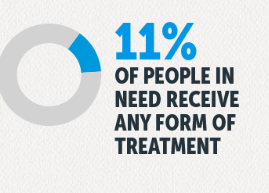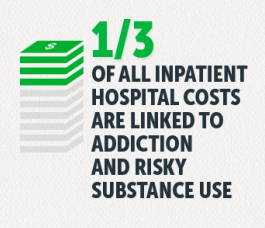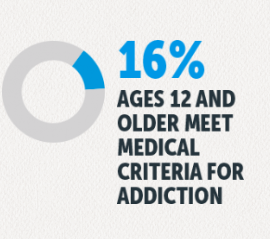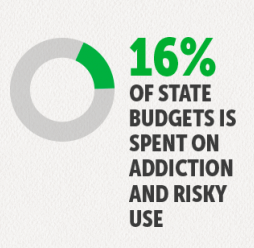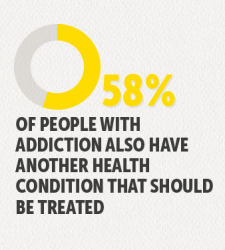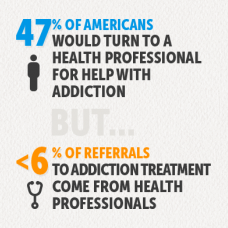The Beautiful Boy Fund is devoted to making quality, evidence-based care available to people who need it and identifying and supporting research to further the field of addiction medicine.
Background
Addiction is the number-one killer of Americans under 50 years old. In 2017, 72,000 people – 200 people a day -- died of overdose alone. Children are particularly vulnerable; 90 percent of those who become addicted begin using drugs before they’re 18. There are 21 million Americans who meet the diagnostic criteria for severe substance-use disorders, and 40 million regularly misuse alcohol and other drugs who are at risk. I consider drug use and addiction America’s number-one domestic problems, not only because of the number of deaths, but other effects of addiction. Substance misuse is behind spiraling healthcare costs and causes and contributes to crime, suicide, violence, accidents, abuse, and skyrocketing lost productivity. According to the 2016 Surgeon General’s Report of Alcohol, Drugs, and Health, the yearly economic impact of substance misuse is $443 billion. The number has spiked since then.
After experiencing addiction in my family – when he was a teenager, my eldest son became addicted and almost died of the disease – I began researching drug use and addiction (substance-use disorders). My goal was to understand what addiction is and why we, as a society, have been so ineffective when it comes to preventing and treating this disease—that is, why we’re losing so many of our loved ones. Moreover, I wanted to learn if we could do better. Over the course of more than fifteen years of research, I determined that drug use and addiction are preventable, and addiction is treatable. However, there are major impediments to progress, the most significant of which is a paucity of funding of organizations and initiatives dedicated to research, prevention, and treatment.
My journey has led me to believe the most effective way to create meaningful change is through grants to organizations for specific research, prevention, and treatment initiatives.
After identifying the need and advised by professionals in the addiction field, I founded the Beautiful Boy Fund with the goal of:
1) identifying and funding promising prevention and treatment programs;
2) identifying and funding research into new and improved prevention and treatment strategies;
3) improving access to quality, evidence-based treatment for those who need it.
The goal of the Beautiful Boy Fund is turning the tide on the crisis that is taking the lives of so many of our loved ones.
-David Sheff
Inverness, CA
The BB Fund is Co-Directed by Rain Henderson
Rain’s North Star and perpetual sense of urgency is preventing harm to all people and the earth and promoting systemic wellbeing. With her consultancy, Rain supports leaders at all levels to make meaningful change in their part of the world. Previously serving as the Chief Executive Officer of the Clinton Health Matters Initiative at the Clinton Foundation, where she was the key advisor and spokesperson for President Clinton on comprehensive health and wellbeing, Rain oversaw the largest domestic effort to improve the wellbeing of all citizens. There, she led the country’s first effort to create a predictable and affordable supply of Naloxone; worked to raise the national conversation on the opioid epidemic beginning in 2011, drove the cultivation of more than $200 million in strategic investments from Fortune 500 companies and NGOs; helped secure the Clinton Foundation’s landmark agreement to improve nutrition and beverage offerings with McDonald’s in 80 percent of the global marketplace; and annually produced the Health Matters Summit featuring the country’s most influential health leaders. Prior to that as Senior Vice President of the Alliance for a Healthier Generation, Rain was instrumental in building the organization from a blueprint to an award-winning, high-impact non-profit with a presence in 50 states, improving the lives of over six million children and the environments of over 30,000 schools. Rain holds a Master of Public Administration and Bachelor of International Relations from Syracuse University’s Maxwell School of Citizenship. Rain focuses her time on addressing substance use and mental health as a trustee of the Harlem Family Institute and a former board member of Facing Addiction. She has served on global advisory boards for AstraZeneca, Nestle, McDonalds, PepsiCo, Coca Cola, Glaxo Smith Kline and more. Previous work includes roles in policy, politics, academia and international relations - all of which have provided her with a deep bench of dynamic social impact colleagues around the globe.

